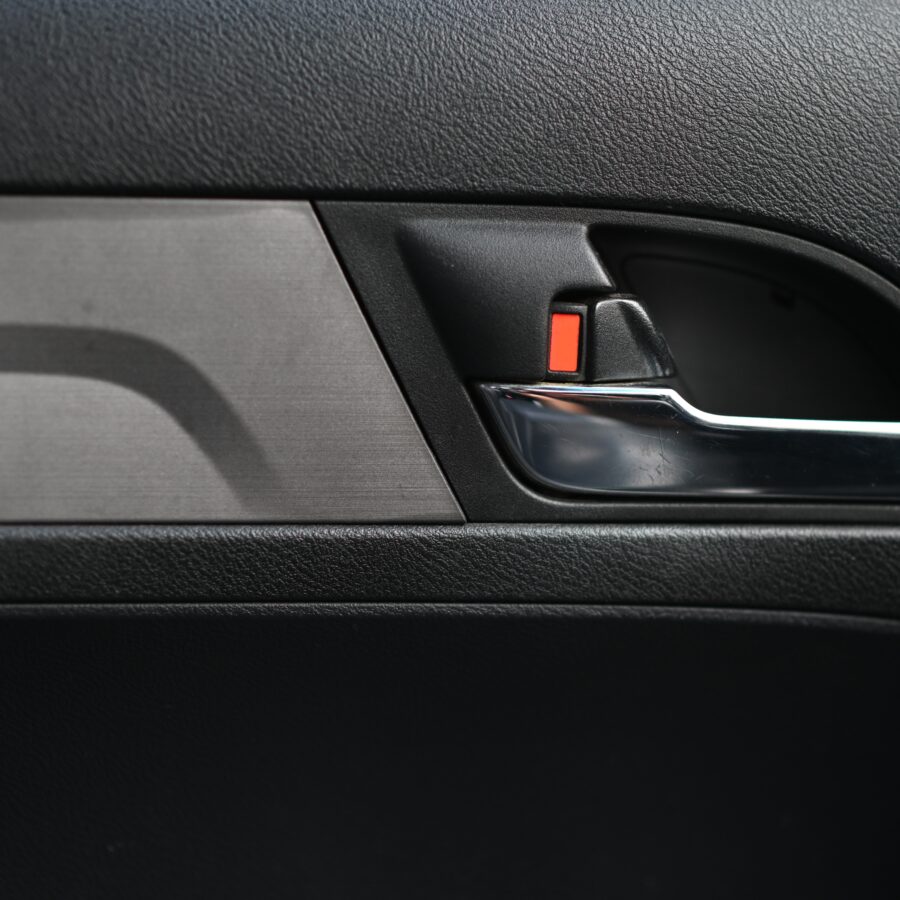BMW X5 “Comfort Access” Putative Class Action Moves Forward
Comfort Access Case: Quick Facts
Case: Myers v. BMW of North America, LLC et al
Case Number: 3:16-cv-00412
Court: California Northern
Nature of Suit: Potential Class Action Lawsuit
Date Filed: January 24, 2016
Companies Involved: BMW of North America LLC
Vehicles Involved: BMW X5
What is the Comfort Access Case About?
Last week, the Judge presiding over a putative class action lawsuit involving an alleged defect in certain BMW X5 vehicles partially denied the automaker’s motion to dismiss. This ruling has important implications for BMW owners, which we will explain in greater detail below.
The case, styled Myers v. BMW of North America, 3:15-cv-412, was originally filed in January 2016 in the United States District Court for the Northern District of California. The plaintiff and putative class representative is Kieva Myers. She alleges that on October 19, 2015, her young child was locked inside of her 2013 BMW X5 while she was walking around to the driver’s side door. She claims that this occurred because of a defect in the vehicle’s “comfort access system.”
The comfort access system is a feature that allows consumers to access their vehicles without activating the remote control. According to the complaint, this system is supposed to prevent the vehicle from being locked if the remote control is still within the cabin. However, the plaintiff alleges that a defect in the system can allow the car to lock even when the key is still in the vehicle, which can trap young children who are unable to unlock and open the doors by themselves.
The plaintiff contends that BMW violated California’s Consumer Legal Remedies Act (“CLRA”) and Unfair Competition Law (“UCL”), and committed fraud by omission by failing to disclose the alleged comfort access system defect. The plaintiff seeks to represent a class of all consumers in California who purchased or leased 2008 through 2015 BMW X5s equipped with the comfort access feature.
Official Ruling on the Comfort Access Case?
BMW denies the plaintiff’s allegations, and has filed multiple motions to dismiss. Among other things, BMW initially argued that there is no defect in the comfort access system, that it never represented that it is impossible to lock an X5 when the key is inside the vehicle, and that it affirmatively warned of the possibility of lockouts or system malfunctions. The Court rejected several of these arguments back in October, ruling that the plaintiff had sufficiently alleged: (1) the existence of a defect; (2) that the defect poses a safety hazard; (3) and a causal relationship between the alleged defect and safety hazard. However, the Court also ruled that the plaintiff failed to allege that she actually relied upon BMW’s alleged misrepresentations and omissions, or that BMW had actively concealed the defect.
The plaintiff responded by amending her complaint again, which in turn was met by another motion to dismiss by BMW. This motion was the subject of the Court’s ruling this week. In the motion, BMW argued that the plaintiff had still not sufficiently alleged active concealment or actual reliance.
The Court sided with BMW on the active concealment issue, and dismissed the common law fraud claim with prejudice. However, the Court sided with the plaintiff on the UCL and CLRA claims, rejecting BMW’s argument that the plaintiff had not alleged actual reliance because she did not claim to have “personally viewed any BMW materials.” In doing so, the Court pointed out that the plaintiff alleged that her husband “conducted thorough research on the vehicle, including reading BMW’s materials and looking at the vehicle’s owners’ manual, and that he discussed his research, with her.” The Court explained that “[t]hese facts suggest that, had a disclosure been made, her husband would have discovered it and relayed it to her.”
What is Next for BMW?
BMW has twenty days to answer the plaintiff’s Second Amended Complaint. From there, the parties will engage in discovery, which will likely be followed by a motion for summary judgment and a motion for class certification. Of course, it’s always possible that the case will settle before or after any of those events occur.
What if I do not live in California?
The Myers complaint seeks relief for only California consumers. However, most states have enacted some form of consumer protection statute similar to those invoked in that case. For example, Florida’s Unfair and Deceptive Trade Practices Act (“FDUTPA”) is similar to California’s UCL and CLRA, and allows consumers to obtain money damages, attorney’s fees and costs, and other relief.
If you think you may have been sold a defective vehicle without being told about the problem, you should consult with an experienced consumer rights law firm to determine what legal remedies may be available. But you must act fast as there are one or more time limitations than can forever bar your right to bring any claim.


